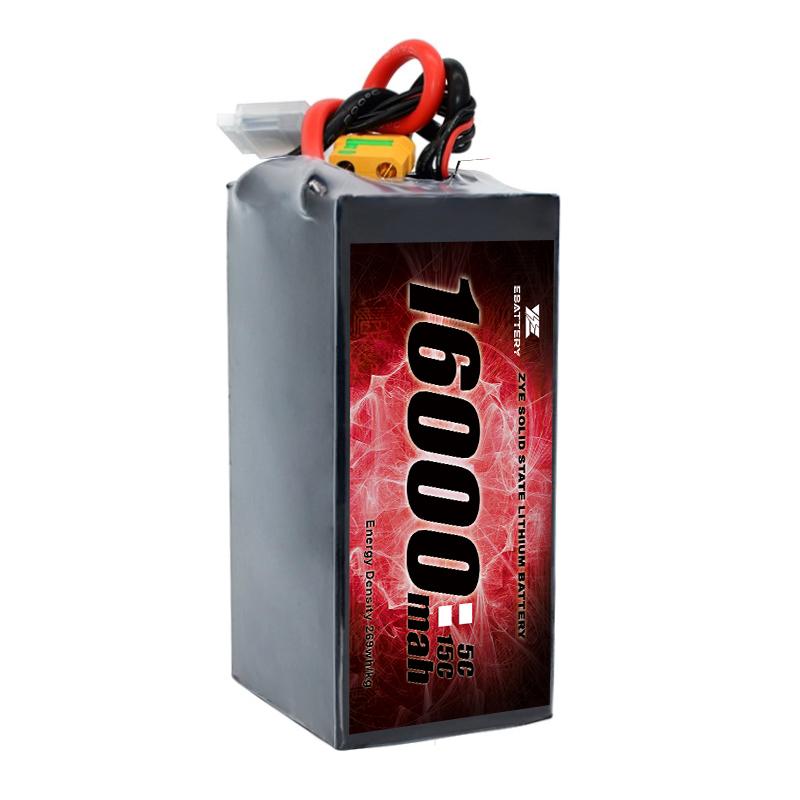Solid-State Batteries: The Future of Safe, High-Efficiency Energy Storage
2025-04-22
Solid-state batteries are emerging as a promising alternative to traditional lithium-ion batteries, offering a host of advantages in terms of safety, energy density, and longevity. These batteries are designed with a solid electrolyte rather than the liquid or gel electrolyte found in conventional batteries, which brings about significant improvements in their overall performance. As the demand for more efficient and sustainable energy storage solutions continues to grow, solid-state batteries have garnered attention across various industries, from electric vehicles to consumer electronics.
One of the most significant benefits of solid-state batteries is their improved safety. Traditional lithium-ion batteries are known to pose a risk of leakage, overheating, and even combustion in extreme cases. This is primarily due to the flammable liquid electrolytes they contain. In contrast, the solid electrolyte in solid-state batteries is non-flammable and less prone to degradation, making them much safer to use. This safety advantage is particularly important in applications such as electric vehicles and portable electronics, where battery failure could have serious consequences.
Another key advantage of solid-state batteries is their higher energy density. Energy density refers to the amount of energy a battery can store relative to its size and weight. Solid-state batteries are capable of storing more energy in the same amount of space, which translates to longer battery life and greater power output. This is especially beneficial for electric vehicles, where the need for longer driving ranges and quicker charging times is critical. With solid-state batteries, electric vehicles could achieve longer ranges without significantly increasing battery size or weight.
The longer lifespan of solid-state batteries is another attractive feature. Because solid-state batteries are less prone to the chemical degradation that affects liquid electrolyte batteries, they can last significantly longer. This longer lifespan reduces the frequency of battery replacements, making them a more cost-effective and sustainable option in the long run. For industries such as electric vehicles and renewable energy storage, where longevity is a critical factor, solid-state batteries offer a clear advantage over traditional batteries.
The solid-state battery's ability to operate at a wide range of temperatures is also a notable benefit. Traditional lithium-ion batteries can struggle in extreme heat or cold, leading to performance degradation and reduced efficiency. Solid-state batteries, however, maintain their performance over a broader temperature range, making them more suitable for use in diverse environments, from the scorching heat of a desert to the freezing temperatures of the Arctic. This capability is essential for applications in industries like aerospace, automotive, and outdoor equipment.
While solid-state batteries offer numerous advantages, there are still challenges that need to be overcome before they can be widely adopted. One of the main obstacles is the high cost of manufacturing. The materials required for solid-state batteries are often more expensive than those used in traditional batteries, and the production process is more complex. However, as research and development in this field continue to progress, costs are expected to decrease over time, making solid-state batteries more affordable for mass-market use.
Additionally, the technology behind solid-state batteries is still evolving. One of the primary hurdles is developing a solid electrolyte that is both conductive and durable enough to handle the charging and discharging cycles that batteries undergo. Researchers are exploring various materials, such as ceramics and glass, to improve the performance and stability of solid-state batteries. As these innovations unfold, it is likely that solid-state batteries will become more reliable and efficient.
Despite these challenges, the potential of solid-state batteries is undeniable. They offer a promising path forward for energy storage solutions, especially in sectors where safety, energy density, and long-term performance are of paramount importance. With ongoing advancements in materials science and manufacturing techniques, it is expected that solid-state batteries will play a significant role in the future of energy storage, providing more efficient and sustainable options for everything from electric vehicles to portable electronics. As technology continues to evolve, solid-state batteries may very well replace traditional lithium-ion batteries, paving the way for safer, longer-lasting, and higher-performing energy solutions.



